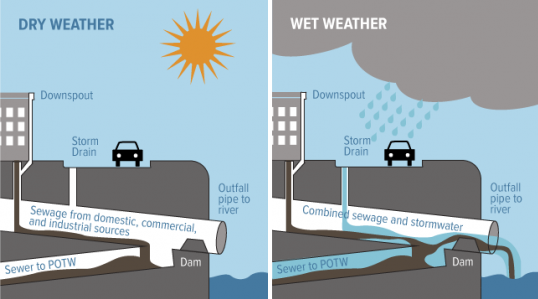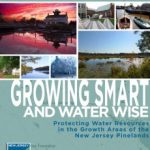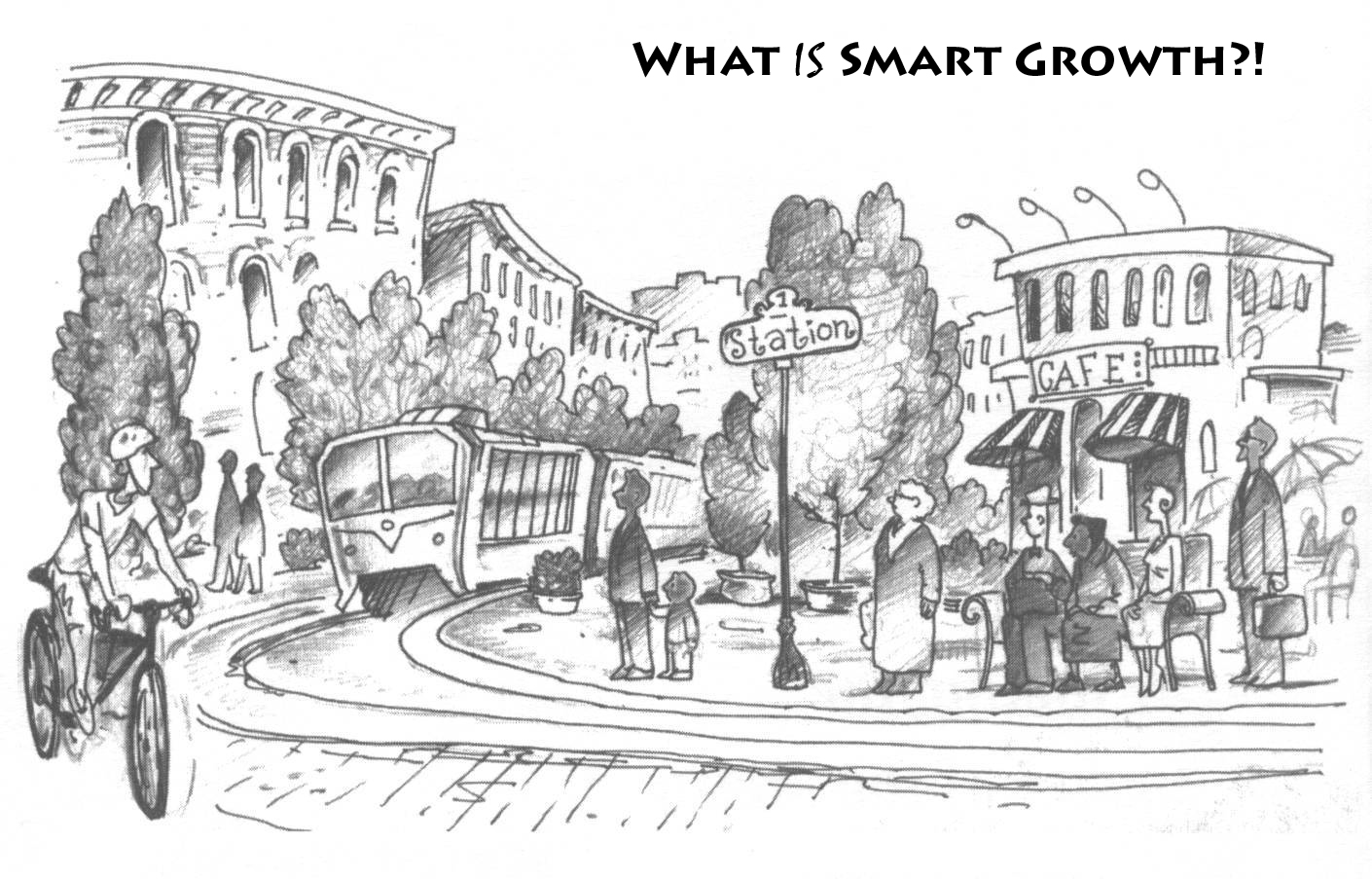New Jersey Future Blog
Time for public input on sewer solutions
August 19th, 2019 by Emily Eckart
Twenty-one cities in New Jersey face ongoing problems caused by their outdated combined sewer systems. The N.J. Department of Environmental Protection (NJDEP) wants public input on proposed solutions. The deadline to submit comments is September 1, 2019.
“Now is the time for the community members to make their voices heard by submitting comments to the NJDEP and participating in local and regional stakeholder meetings,” said Nicole Miller, a member of Newark DIG (Doing Infrastructure Green). “The next few months are critical for the residents and business owners who will be impacted by these plans and who will ultimately pay for them.”
Combined sewer systems were built in the late 19th and early 20th centuries and are found in New Jersey’s older cities, including Paterson, Camden, and Hoboken. These systems handle stormwater runoff and sewage with the same set of pipes. When it rains heavily, high volumes of runoff overwhelm the system and it overflows, discharging runoff and raw sewage into nearby waterways, streets, and sometimes even basements.

Diagram of how combined sewers work in dry and wet weather. Credit: EPA.
What represented state-of-the-art technology a century ago is no longer a viable stormwater and sanitation solution. By discharging untreated sewage into the open, combined sewer overflows (CSOs) are a threat to public health, as well as a detriment to economic development and quality of life. And the problem is only getting worse. Rainfall is increasing due to climate change. Meanwhile, dense development in New Jersey has covered vast areas with asphalt and concrete, preventing stormwater from soaking into the ground. Both trends result in larger volumes of runoff, meaning more frequent and severe CSOs.
To address this problem, NJDEP required municipalities and utilities with combined sewers to submit reports evaluating potential long-term solutions. These Evaluation of Alternatives reports were completed on July 1, 2019, and they are posted online for public review and comment. The deadline to submit comments on the reports is September 1, 2019.
It’s important for the public to participate now. Long-term plans for combined sewers will be finalized on July 1, 2020. The proposed solutions in Evaluation of Alternatives reports vary widely, including everything from green infrastructure to water conservation and sewer separation. These solutions differ in both appearance and potential cost.
“Communities will be investing billions of dollars to stop sewage from overflowing into waterways and backing up onto streets and into basements,” said Kim Gaddy, Newark resident and environmental justice organizer for Clean Water Action. “The question is, what will this investment look like and how will it benefit our communities?”
Both Miller and Gaddy are advisory board members of Sewage-Free Streets and Rivers, a statewide campaign supported by New Jersey Future that works to increase public engagement with CSO solutions. Sewage-Free Streets and Rivers posts regular updates on NJDEP’s process, informs community members about upcoming meetings, and provides information about CSOs, including tips on how to review Evaluation of Alternatives reports.
Community members can read the Evaluation of Alternatives reports on NJDEP’s website and submit comments to NJDEP’s CSO team leaders.

















